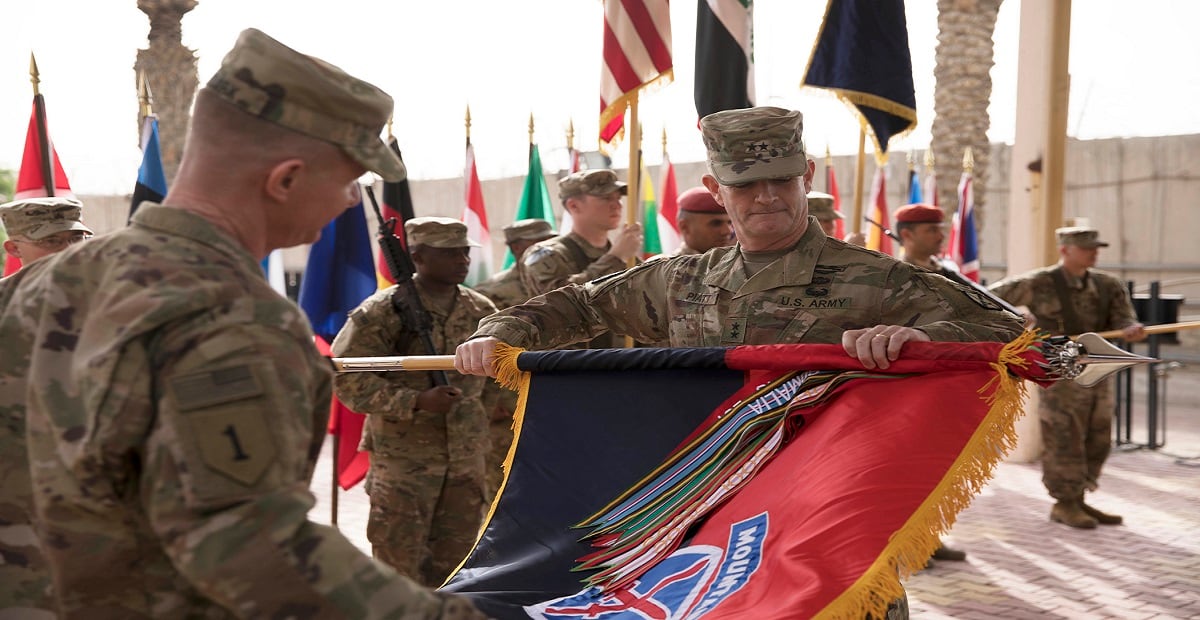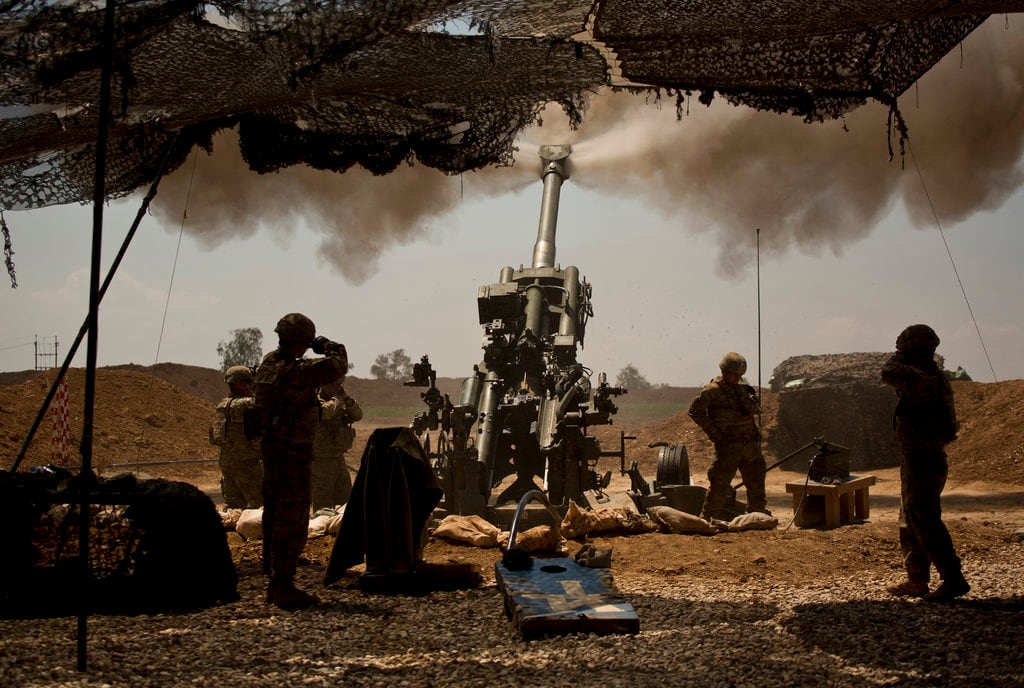With the furling of a flag, top U.S. military leaders marked the “end of major combat operations against ISIS in Iraq” and a change to the U.S.-led coalition’s mission in the country.
But experts say while it’s likely that troop numbers in Iraq will decrease, those resources will likely spread out to assist nearby missions in the region — from the Arabian Peninsula to Afghanistan and missions in Africa.
On Monday, commanders transferred the land fight against any remaining ISIS holdouts in Iraq to Combined Joint Task Force-Operation Inherent Resolve, according to a coalition release.
RELATED

That doesn’t mean all the troops are coming home, though.
When asked about troop levels during a briefing Monday, Defense Secretary Jim Mattis told Military Times that troop numbers are adjusted to ensure that the force is “fit for its current mission.”
And that mission will shift, “from supporting and enabling combat operations to the training and development of self-sufficient Iraqi security-related capabilities,” according to a coalition statement.
That move means that troops recently deployed to the area, such as the 10th Mountain Division headquarters that arrived in March, will continue in a “train, advise, assist” mission.
The decision could mean all the difference when it comes to avoiding a repeat of the near collapse of the Iraqi military after the 2011 U.S. withdrawal and subsequent rise of the Islamic State terror group, one Middle East expert said.
More than shifting the role of U.S. and coalition troops in the country, it could prove helpful to other missions in the area, namely ongoing operations in Syria and beyond.
“It could mean increasing resources in Afghanistan, Yemen and Somalia,” said James Phillips, a Middle East expert with the Heritage Foundation. “And, to a lesser extent, in Africa, in Chad, around the borders of Mali.”
Most of the ground forces being freed up, he said would likely be special operations forces who’ve been in high demand in all the regional conflicts for years.
“I’m not sure how many [SOF] bases we have inside Iraq, but I imagine those will be packed up and withdrawn,” Phillips said.

This mission shift comes after Iraqi Prime Minister Haider al-Abadi claimed victory over ISIS in December. In February, Iraqi government spokesman Saad al-Hadithi said in a statement that “the battle against Daesh has ended so the level of the American presence will be reduced.”
But U.S. officials have avoided specific troop numbers tied to changes in the anti-ISIS fight in Iraq.
“President Trump has stated that the United States will not ‘telegraph’ its troop levels and activities, but will always base its force levels on the requirements of the mission,” Pentagon spokesman Eric Pahon wrote in an email Monday.
”We will retain an appropriate amount of capabilities as well as an advisory presence” to continue training, advising and equipping partners in the “continued fight against ISIS,” he added.
Any reduction in U.S. troops and takeover in the fight by the Iraqi military might also aid al-Abadi in other ways.
Phillips said some pro-Iranian militias have tried to make the presence of foreign troops in Iraq an issue in the upcoming May elections.
“This could kind of deflate the importance of that issue,” Phillips said. “And probably also help Abadi by saying ’the training wheels are off. The Iraqis have done a good job and don’t need as much help as they did before.’”
The shift sends a signal to Iraqis that “they still have a counterweight to Iran in the U.S.,” Phillips said. “And the U.S. is still actively involved in training their armed forces, which may ultimately end up clashing with these pro-Iranian militias.”
For nine months leading up to the arrival of the 10th Mountain headquarters, of Fort Drum, New York, soldiers with the 1st Armored Division of Fort Bliss, Texas, helped the Iraqis bring the fight to ISIS.
Before them, soldiers with the 1st Infantry Division of Fort Riley, Kansas, had assisted Iraqi forces in retaking Mosul, Iraq, which had been under the control of ISIS.
Pentagon Bureau Chief Tara Copp and the Associated Press contributed to this report
Todd South has written about crime, courts, government and the military for multiple publications since 2004 and was named a 2014 Pulitzer finalist for a co-written project on witness intimidation. Todd is a Marine veteran of the Iraq War.
